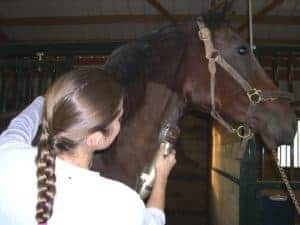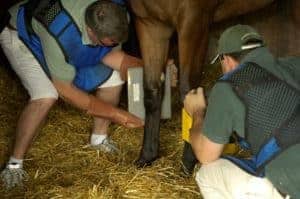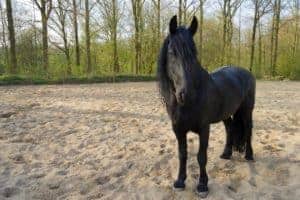
Is Clipping Still Stressful for Well-Behaved Horses?
Study results suggest that even if horses don’t seem to mind clipping, they might still find it stressful.


Study results suggest that even if horses don’t seem to mind clipping, they might still find it stressful.

Researchers determined that it’s the sire’s genes that take the lead in developing the mare’s placenta.

This revived species could offer scientists some exciting equine research opportunities.

Feeding hay before grains appeared to reduce the intensity of cribbing episodes in a recent study.

Learn about the 21 different amino acids your horse needs to build proteins in his body.

Mules appear to have a faster capacity to navigate around objects than horses and donkeys, researchers say.

However, young horses were able to detect more obvious human body cues like finger-pointing.

Researchers confirmed what some believed all along: JOCC might be one disease, but it?s a very complex one.

Researchers developed a test to find out whether horses are optimistic, pessimistic, or somewhere in between.

Yes, even horses can be optimistic or pessimistic, according to Swiss equine behavior scientists who have developed a test to find out whether horses are one or the other, or somewhere in between.

Honey’s all the buzz in natural wound remedies, and according to recent research, it works with horses, too.

A better understanding of the lesions found in growing horse skeletons has led to clearer terminology.

Researchers proved that horses can become “lighter” with proper negative reinforcement training.

Find out how these special blankets keep bugs off your horse and prevent a frustrating skin condition.

French researchers tested the new grading scale on 392 young horses screened for osteochondrosis.

Knowledge about handling outbreaks will help ensure the best health possible for all horses involved.
Stay on top of the most recent Horse Health news with
Notifications